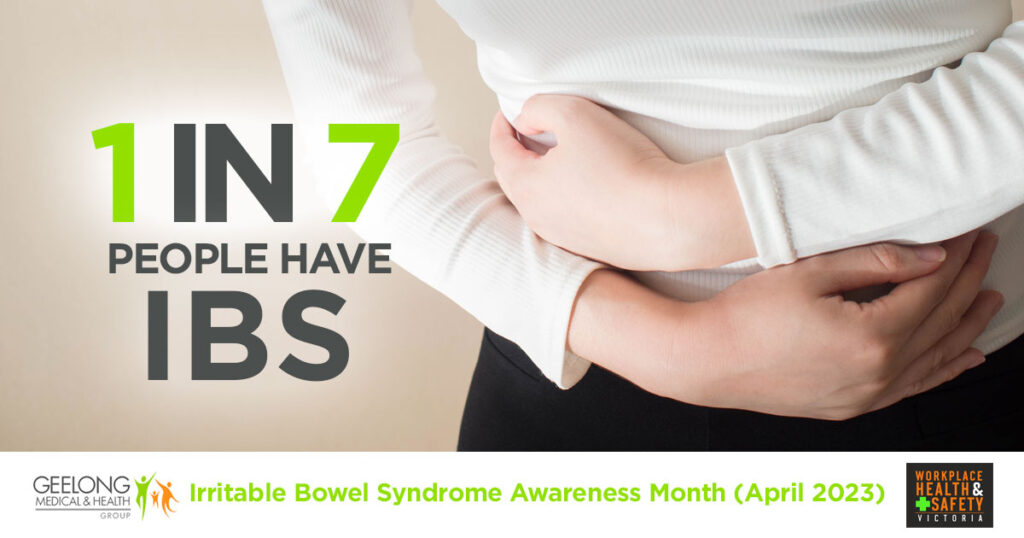1 in 7 People Have IBS
April 4 2023
As April marks IBS Awareness Month, it is important to bring attention to Irritable Bowel Syndrome (IBS) and the impact it has on individuals and the healthcare system. IBS is a chronic gastrointestinal disorder that affects the function of the colon, causing abdominal pain, bloating, and changes in bowel habits. It is estimated that around one in seven Australians experience the symptoms of IBS, with women being more commonly affected than men.
Despite being a prevalent condition, the exact cause of IBS remains unclear. However, it is believed to be influenced by factors such as diet, stress, and hormonal changes. One approach that has shown promise in managing symptoms of IBS is the FODMAP diet.
FODMAP is an acronym for Fermentable Oligosaccharides, Disaccharides, Monosaccharides, and Polyols, which are types of carbohydrates that can be poorly absorbed in the small intestine and cause gas, bloating, and abdominal discomfort. The FODMAP diet involves restricting high FODMAP foods for a period of time, followed by gradually reintroducing them to identify which foods trigger symptoms.
The FODMAP diet is a three-phase elimination diet, which starts with a strict elimination of high FODMAP foods for a few weeks, followed by a reintroduction phase where foods are gradually added back in. Finally, the maintenance phase involves a personalized long-term diet plan based on the individual’s tolerance to FODMAPs.
While the FODMAP diet can be effective in reducing IBS symptoms, it is important to work with a healthcare professional, such as a gastroenterologist or a registered dietitian, to ensure a balanced diet that meets all nutritional needs.
In addition to dietary changes, other lifestyle modifications, such as regular exercise, stress management, and getting enough sleep, can also help manage symptoms of IBS.
IBS Awareness Month brings attention to a condition that affects a significant number of Australians. The FODMAP diet is an approach that has shown promise in managing IBS symptoms, but it is important to seek professional advice before making dietary changes. By working with healthcare professionals and implementing lifestyle modifications, individuals with IBS can improve their quality of life and manage their symptoms effectively.
For more information, visit FODMAP FRIENDLY.
